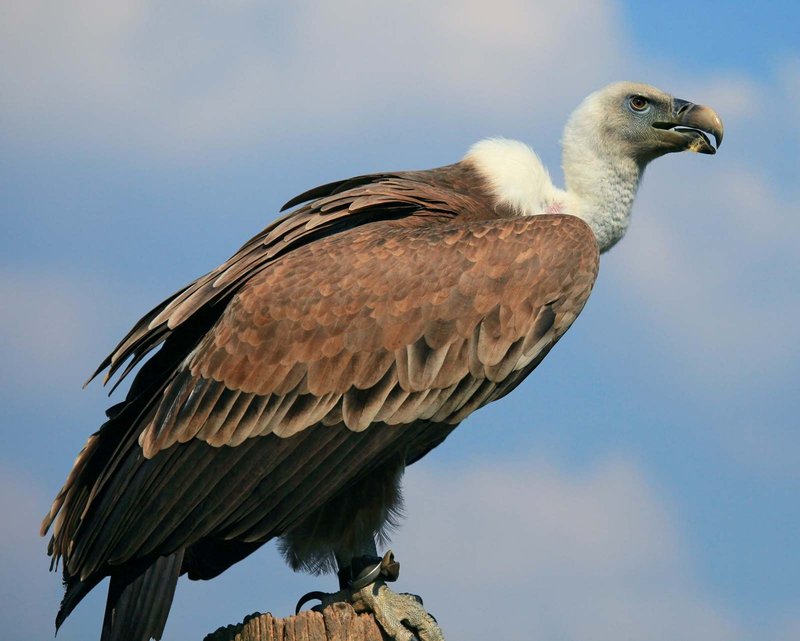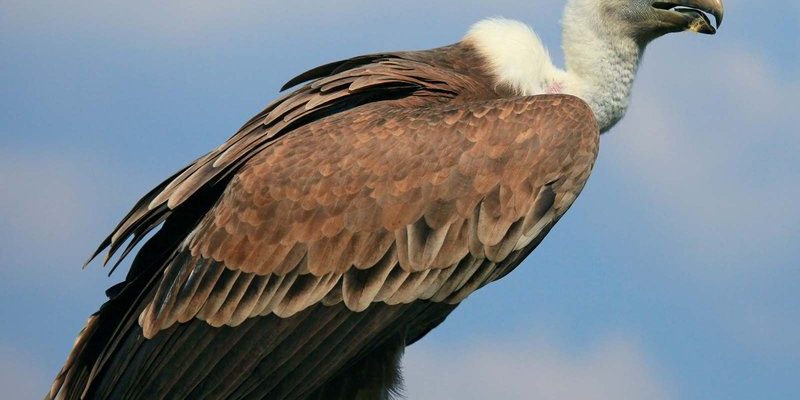
You might be wondering what exactly is putting these magnificent birds at risk. The truth is that their struggles are a mix of human activities, environmental changes, and their unique life strategies. To better understand the situation, we’ll break down what makes vultures threatened or endangered, how we can help, and why these birds are so essential to our environment.
Understanding Vulture Species
Vultures belong to a group known as scavengers, and there are several species worldwide, mainly divided into two categories: Old World vultures and New World vultures. Old World vultures, found in Europe, Asia, and Africa, are often larger and have a more robust appearance. New World vultures, primarily located in the Americas, are known for their distinctive bald heads, which help keep them clean while feeding on carrion.
Let me explain a bit more about these categories. Old World vultures, like the Griffon Vulture and Egyptian Vulture, rely heavily on their keen eyesight to spot food from great heights. In contrast, New World vultures, like the Turkey Vulture and California Condor, have a more developed sense of smell, which is unique among vultures. This variation in feeding habits and habitats contributes to their vulnerability, as different species face different threats.
If you’re thinking about how many vulture species are endangered, you’re not alone. Many people are shocked to learn that nearly 50% of vulture species are classified as threatened or endangered. Understanding the differences between these species helps in developing targeted conservation strategies.
The Threats Facing Vultures
So, what are the primary threats that vultures face today? Honestly, it’s a mix of human actions and habitat destruction. One of the biggest culprits is poisoning. In some regions, farmers use toxic substances to eliminate pests, which can inadvertently poison vultures that feed on the carcasses. This accidental poisoning has devastating effects on vulture populations.
Another critical issue is habitat loss. As urban development encroaches on natural spaces, vultures lose their nesting sites and access to food sources. Additionally, the increasing fragmentation of ecosystems makes it harder for these birds to find safe places to thrive.
Lastly, poaching and illegal hunting also contribute to the decline of vulture populations. In certain cultures, vultures are hunted for traditional medicine or for their feathers. This not only reduces their numbers but also disrupts the balance of the ecosystem since their scavenging role is left unfilled.
The Importance of Vultures
You might be asking, “Why should I care about vultures?” Here’s the thing: vultures are essential for maintaining a healthy ecosystem. By feeding on dead animals, they help control the spread of diseases and keep the environment clean. Without vultures, the carcasses would accumulate, leading to outbreaks of diseases that can affect humans and other wildlife.
Vultures also contribute to nutrient cycling. Their droppings contain nutrients, which enrich the soil and help sustain plant life. This cycling ultimately supports the entire food web, including other animals that depend on plants for food.
Imagine a world without vultures. It would be messier and potentially dangerous. By protecting vultures, we are also protecting our ecosystems and our health.
Conservation Efforts for Vultures
Fortunately, there’s hope for vultures! Numerous conservation groups are working tirelessly to protect these incredible birds. Programs focus on habitat restoration, anti-poaching efforts, and raising awareness of the plight vultures face. For example, organizations like the Vulture Conservation Foundation are dedicated to monitoring vulture populations and implementing breeding programs for endangered species.
One successful approach has been creating vulture restaurants. These are designated areas where carcasses are placed for vultures to feed safely. This not only helps provide food but also encourages people to see vultures as valuable members of the ecosystem, rather than just pests.
Public education also plays a crucial role in conservation. By informing communities about the importance of vultures and the threats they face, we can foster a more supportive attitude towards their preservation. When people understand their value, they’re more likely to get involved in conservation efforts.
How You Can Help Vultures
You might be wondering what you can do to support vultures in your area. There are several simple actions you can take. First, consider supporting wildlife organizations that focus on vulture conservation. Donations can go a long way in helping these groups continue their vital work.
Additionally, spreading awareness is key. Talk to friends and family about the importance of vultures and share information on social media. The more people know, the more support we can rally for these endangered birds.
Another small but impactful action is to reduce pesticide use in your garden or farm. By choosing natural pest control methods, you can help prevent accidental poisoning of vultures and other wildlife.
Lastly, if you live in an area where vultures frequent, consider creating a safe zone for them to feed, like a vulture-friendly area with carcasses placed away from roads and human activity. Every little effort counts!
In wrapping up our conversation about vultures, it’s clear that these remarkable birds are facing a multitude of threats. From habitat loss to poisoning, their populations are dwindling, and many species are threatened or endangered. However, there’s hope on the horizon thanks to ongoing conservation efforts and public awareness.
By understanding the importance of vultures and taking action to support their conservation, we can all play a part in ensuring that these vital scavengers continue to thrive. Remember, vultures are not just a part of the ecosystem; they’re essential to its health and balance. So, let’s keep our eyes on the skies and work together to protect these amazing birds for generations to come.

